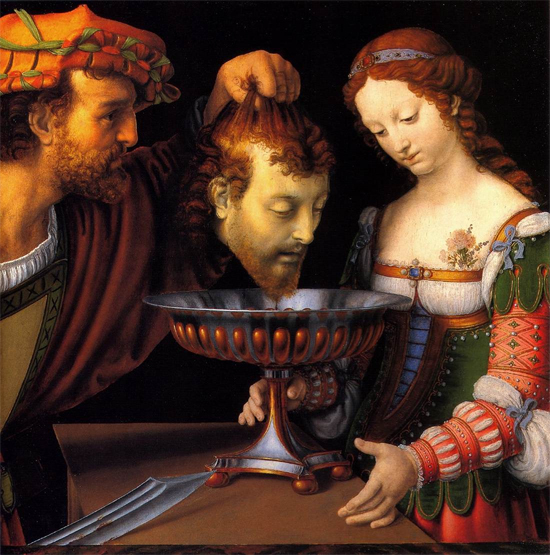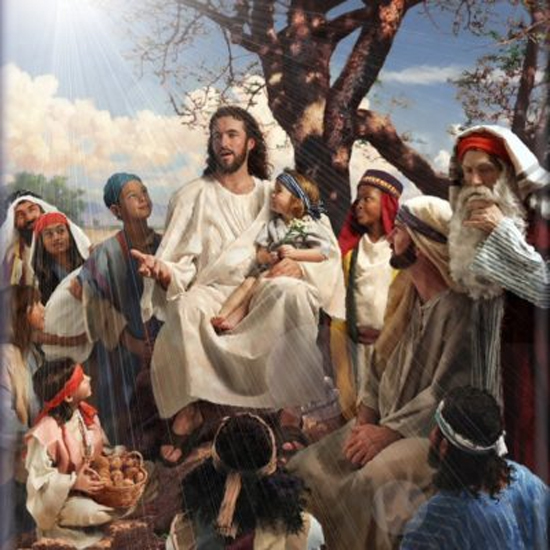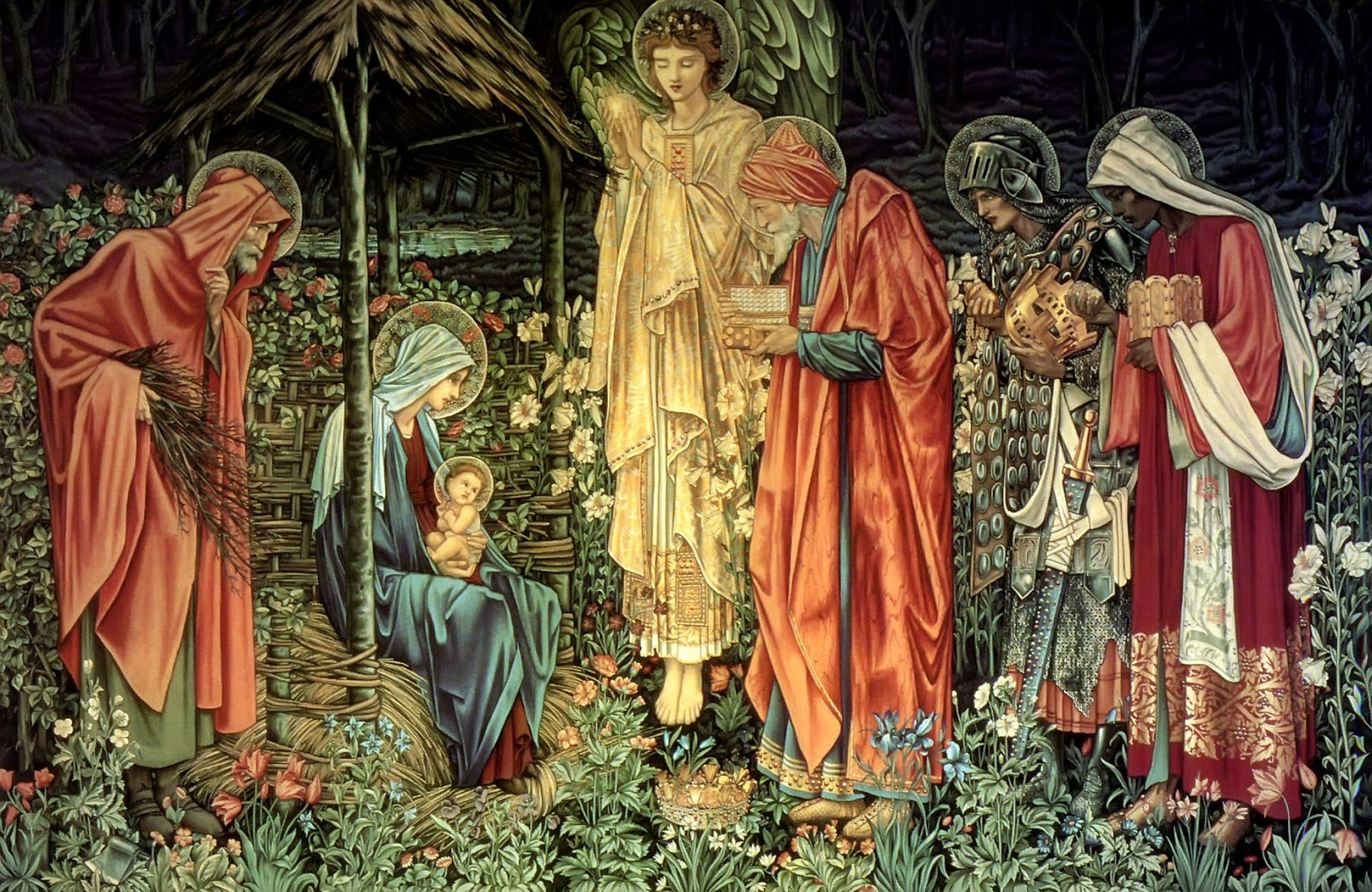Christian Art | Martyrdom Of John The Baptist | Christian Saints And Martyrdom In The Bible
Matthew 14: 1-12 – Week 17 Ordinary Time, Saturday (King James Audio Bible KJV, Spoken Word)
1 AT that time Herod the tetrarch heard of the fame of Jesus,
2 And said unto his servants, This is John the Baptist; he is risen from the dead; and therefore mighty works do shew forth themselves in him.
3 ¶ For Herod had laid hold on John, and bound him, and put him in prison for Herodias’ sake, his brother Philip’s wife.
4 For John said unto him, It is not lawful for thee to have her.
5 And when he would have put him to death, he feared the multitude, because they counted him as a prophet.
6 But when Herod’s birthday was kept, the daughter of Herodias danced before them, and pleased Herod.
7 Whereupon he promised with an oath to give her whatsoever she would ask.
8 And she, being before instructed of her mother, said, Give me here John Baptist’s head in a charger.
9 And the king was sorry: nevertheless for the oath’s sake, and them which sat with him at meat, he commanded it to be given her.
10 And he sent, and beheaded John in the prison.
11 And his head was brought in a charger, and given to the damsel: and she brought it to her mother.
12 And his disciples came, and took up the body, and buried it, and went and told Jesus.
Today’s Gospel verses provide great insight into the political constitution of Jesus’ homeland during the lifetime of Jesus. Herod the tetrarch, Herod Antipas, is in charge, a client of the Roman Empire and son of Herod the Great. He governed Galilee and Perea. He was married, according to the Jewish historian Flavius Josephus, to a daughter of an Arabian king, but lived in concubinage with Herodias, his brother’s wife.
John the Baptist had criticised Herod’s immoral life, which was in conflict with the sexual morality laid down in the Law and was a cause of scandal. Herod’s broader fear concerning John was that he might become the leader of a popular movement and create unrest, which would endanger Herod’s position. Herod’s attitude to John is that of a tyrant, who has imposed his will on the land, and by so doing has caused the people suffering. Taxes imposed on the people would be channelled to Tiberiade, the newly constructed capital, built around the year 20 and named in honour of Tiberius, Emperor of Rome. The city itself was an imposition upon the people of Galilee, the presence of a cemetery, for example, rendering the site ritually unclean for the priestly caste to live in, Herod forcefully resettling many non-Jews there to populate his new city.
We see the lavish and lascivious fruits of such tyranny in the orgy during which Herod makes his vow to the daughter of Herodias, who was called Salome. St Augustine comments: ‘Amid the excess and sensuality of the guests, oaths are rashly made, which then are unjustly kept.’ It is a sin to make an oath to do something unjust; any such oath has no binding force. Indeed, to keep such an oath compounds the sin. Such is the environment Herod has created around himself, that his conscience is lost to him, as he is submerged within evil – within the egotism and false display which are attendant upon tyranny. Herod’s murder of John the Baptist is the result of dehumanizing orgy.
It may seem wonderful to us that these Bible verses end on a tender note. John the Baptist’s disciples come to take care of his body, to express love and give the body a fitting, decent end. Then they go to tell Jesus what has happened. We can imagine what Jesus must have felt and thought at the news of his friend’s death, and the concern with which the disciples must have given Jesus the news, as an act of love.
![]()
Concluding Prayer | Love Revealed By Jesus Christ | King James Audio Bible
I cried with my whole heart; hear me, O LORD: I will keep thy statutes.
I cried unto thee; save me, and I shall keep thy testimonies.
I prevented the dawning of the morning, and cried: I hoped in thy word.
Mine eyes prevent the night watches, that I might meditate in thy word.
Hear my voice according unto thy lovingkindness: O LORD, quicken me according to thy judgment.
They draw nigh that follow after mischief: they are far from thy law.
Thou art near, O LORD; and all thy commandments are truth.
Concerning thy testimonies, I have known of old that thou hast founded them for ever. (Psalm 118/119, 145-152, XIX, Koph)
Let the splendour of the resurrection
light up our hearts and minds, Lord,
scattering the shadows of death,
and bringing us to the radiance of eternity.
We make our prayer through our Lord.








